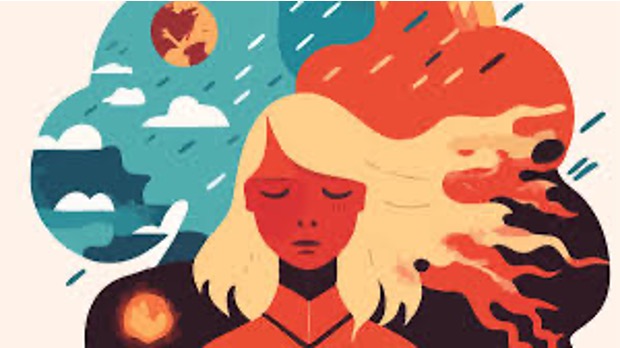Project Background
Climate anxiety and grief is a potentially pervasive, but unquantified phenomenon amongst undergraduate students, particularly those for whom climate science and policy is a central focus of degree programs. Underlying climate anxiety can interfere with true engagement in coursework, and disrupt day to day activities in severe cases. Over the 2023-2024 academic year, researchers at the University of Utah surveyed over 500 undergraduate students to gauge levels of climate anxiety, illuminate common emotions and coping responses related to climate anxiety, and assess whether pedagogy around climate systems and climate change exacerbates or mitigates climate anxiety. We have strong evidence that climate anxiety is more prevalent amongst females than males, and that undergraduates often use recreation or other self-focused diversions to deal with climate anxiety. Preliminary evidence suggests that pedagogical approaches like community engaged learning, internships, independent research, and capstone projects ameliorate climate anxiety; but more analysis is needed to determine if these trends hold over all survey responses. In addition, more research is needed on the extent to which climate optimism exists amongst undergraduates, building on the work of a previous student supported by the Office of Undergraduate Research.
Federal Program: This project is funded by the National Institutes of Health and has specific eligibility requirements. Applicants must: 1) be a matriculated, degree-seeking U undergraduate students; 2) be eligible to work in the US; and 3) be from an underrepresented group as defined by the National Institutes of Health. This includes people who are Black or African American, Hispanic or Latinx, American Indian or Alaska Native, Native Hawaiian, or other Pacific Islanders.
Student Role
We seek undergraduate students to help analyze anonymized data associated with this study, draft a number of articles for publication, and engage with on-campus partners to establish student resources to alleviate climate anxiety. Students will thus work in Excel software and either Atlas software for qualitative data analysis or R software for quantitative data analysis. Students also will learn how to craft scientific publications using either Word software or Overleaf, an online platform for coding papers and rendering them in a variety of templates. All software will be made available to students free of charge. Students will be familiarized with the process of obtaining IRB approval for human subjects research and using Qualtrics software for distributing surveys, although this information will be provided only to give context about the project. Students may help project investigators contact on campus partners to inquire about developing partnerships for offering additional resources for students to identify, process, and transform their feelings about climate change.
Student Learning Outcomes and Benefits
Students will learn about the phenomenon of climate anxiety and ways to transform it into action that bolsters both hope and optimism. For students interested in focusing on climate science or policy as a career pathway, these lessons could be transformative. Students also will be exposed to mixed methods for analyzing data and become familiar with a number of different software platforms used to analyze and visualize data or produce manuscripts. Finally, students will become aware of the missions and services of different on campus partners who provide resources related to student mental health, while evaluating critical gaps in services and co-developing solutions to fill these gaps.

Jenn Shah
This project will be co-mentored by myself and a co-PI, Dr. Adrienne Cachelin (ESS). We will meet with the student at the onset of the summer to provide project context and determine student interests. We will co-develop a primary research question, as well as a outline the research approach. We will then meet on a weekly basis to address progress and challenges. We will familiarize the student with software required to conduct project work, and review output from data analyses or writing efforts. We will help guide the development of a research poster for project communication at the SPUR symposium. We will attend SPUR related events for faculty. Our research will be coordinated through the HAPPIEST project (Co-PIs: Drs. Sara Grineski - SOC, and Tim Collins - ESS). As such, graduate students associated with this project will also serve as mentors to students working on the climate anxiety project and the SPUR student will become acquainted with a smaller cohort of undergraduate students working on other HAPPIEST projects.
